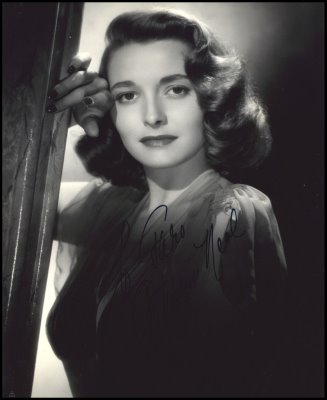She could have been Mrs Robinson in The Graduate; she did play (once) the all-American mama Olivia Walton; and for 30 years she was the real-life Mrs Roald Dahl. For me, though, Patricia Neal will always be plain old Alma Brown, the world-weary housekeeper who refused to become another notch on the bedpost of Paul Newman’s amorous Hud Bannon.
It’s well-known that Neal’s screen career was truncated by the debilitating strokes she suffered in the mid-60s. But she still notched up almost 70 screen credits beginning in 1949 with a role in the Ronald Reagan comedy, John Loves Mary. That year she also appeared with a craggy-looking Gary Cooper in The Fountainhead, a tale of architectural fanaticism featuring some truly clunky dialogue and an overwrought Max Steiner score. Neal smoulders opposite the man she’d fallen in love with. With that big age gap – Cooper was 48 – they might have been another Bogart and Bacall, but he eventually reconciled with his wife.
In the sci-fi classic The Day the Earth Stood Still it would be hard for any actress not to be upstaged by Gort and Klaatu, but Neal projects normality amidst the mounting hysteria. When “Mr Carpenter” (Michael Rennie) comments that her young son is “warm, friendly, intelligent”, I find myself thinking that those qualities apply not just to Neal’s character in the film but to the actress herself.
Hud, the contemporary western, for which Neal won the best actress Oscar in 1964, has long been one of my favourite movies. From Elmer Bernstein’s haunting guitar theme, to James Wong Howe’s luminous black and white photography, this wrenching drama about a Texan family on the brink of extinction has always seemed note perfect. Who could compete with the magnificent Paul Newman, then at the height of his physical beauty and totally compelling as the out and out bastard with no loyalty? Well, Neal did.
As the surrogate mother to teenager Lonnie (Brandon De Wilde), Neal holds together an all-male household, with her wisdom, her kindness and her no-nonsense approach to domestic chores. For once, a Hollywood actress really looks as though she knows her way round a kitchen. Newman’s Hud flirts with her, torments her, tries to rape her and – eventually – drives her away. When she leaves town and the disconsolate Lonnie, it’s one of the saddest scenes I can remember in 60s cinema.
Several of the tributes I’ve read today have referenced Neal’s great beauty, along with her courage and consummate acting skills. Looking at stills of her in The Fountainhead, I can see why. It’s a compliment and not an insult to say that I’ve always thought of Neal primarily as an actress and not a sex symbol. But now, watching clips of her and listening to that husky voice I think of Lauren Bacall, born two years earlier, but considered much more of a screen icon. I guess it really is all down to luck, and Neal, who succumbed to lung cancer, was sometimes desperately short of that commodity.
Susannah Straughan







